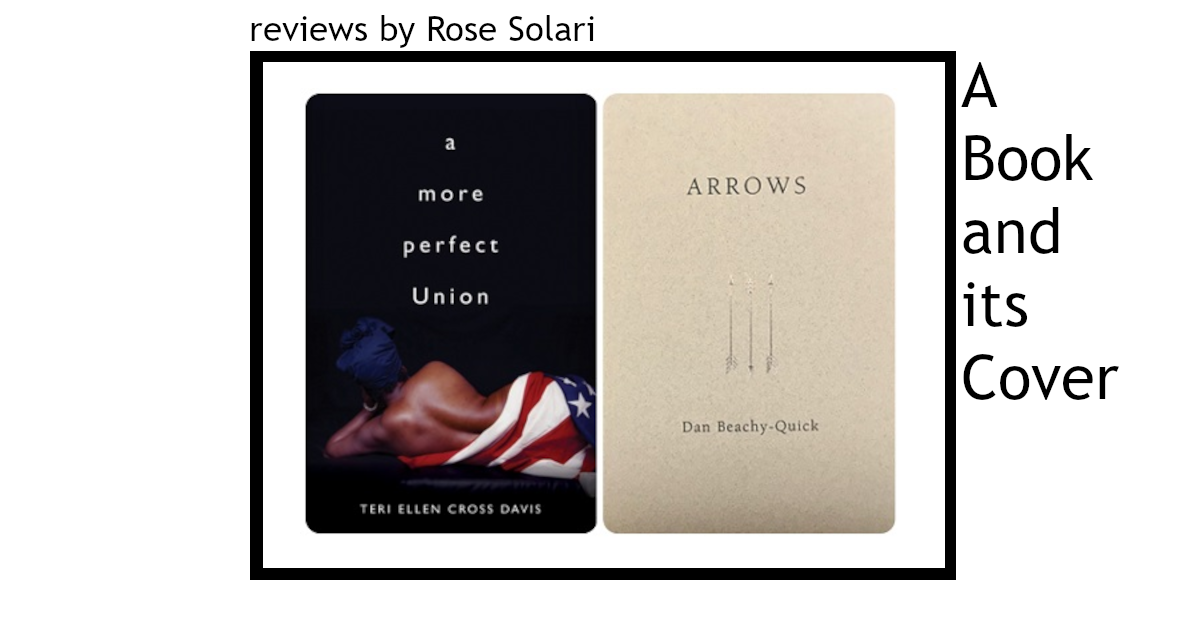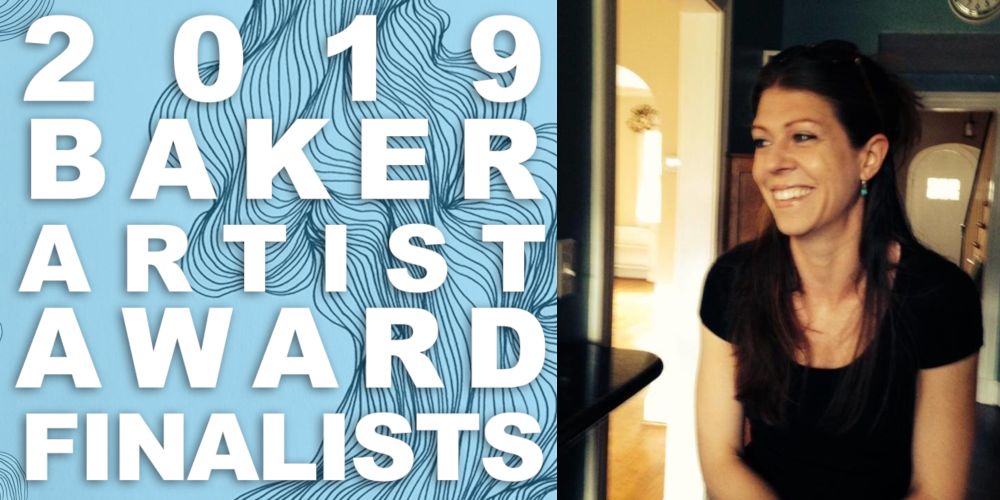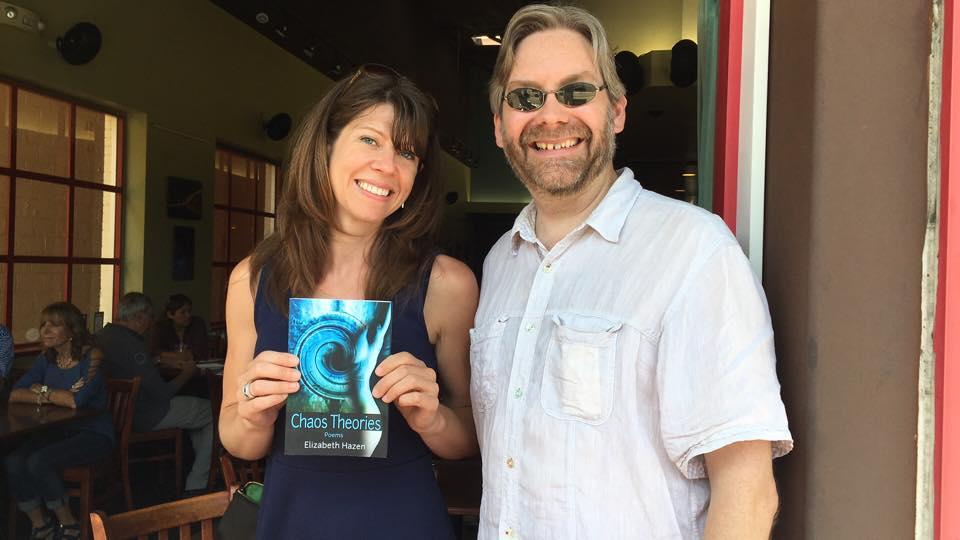A Book and Its Cover: Rose Solari Reviews Two New Collections of Poetry for WIRoB
Terri Ellen Cross Davis and Dan Beachy-Quick's new collections get the Rose Solari treatment in a new review which ties subject matter to cover design.

Rose Solari's latest review column for Washington Independent Review of Books tackles two stellar new collections by established small-press poets, Terry Ellen Cross Davis and Dan Beachy-Quick. As with all her reviews, Rose uses a common theme to link the subject matter of the books she is reviewing. This month, she explores how the cover design is mirrored by the poetry and vice versa.
Of Terri Ellen Cross Davis' new collection a more perfect union, Rose writes that before you read the first page you know that the poems will be "strong, elegant, embodied, female, and Black." She goes on to praise Cross Davis' incisive poetry which "[don't] waste time." In Rose's words Cross Davis' "lyricism is purposeful, her observations cut quick and sharp." Finally, Rose praises Cross Davis for her lack of "sugar-coating" particularly in poems which detail the relationship of a Black mother and son.
Of Dan Beachy-Quick's aptly titled Arrows, Rose praises a cover and forward matter that at first appear overly "precious" but, after reading the first poem and being transported "immediately into another world, an imagined ancient time where place is a meditative state of mind," capture the mood and feel of the book perfectly. Rose both praises and criticizes the classical bent of the poetry:
"Unless you’re a classicist yourself, you might need a few reference books (or handy use of online searches) to follow these poems to their landing places. But rather than being put off by that, I was grateful to feel, as I read, my mind widening to encompass the contradictory impulses, the sly jokes followed by unabashed celebration that these poems contain."
Fiddlin’ Around in Ireland
Nothing buoys the spirits like a walk along Grafton Street. Gray day or sunny, it’s bright with noise and laughter. Loud “hellos,” babies crying, neighborly gossip, rich brogues and lilting Irish airs float up onto the breeze. Our chosen course allowed for a stroll through St. Stephen’s Green. Sunlight dappled the leafy brakes. Inspired by the moment, Lawrence liberated his fiddle and sawed out a hornpipe. He was joined in his performance by a pair of amorous ducks.
On Grafton street we were immediately surrounded by music. A couple of 9 and 10-year-old boys, Donald Reagon and Paul O’Neill, were delighting passersby with smooth moves on the fiddle and concertina. College students with shaved heads played sitars. Old men played jazz. A guitarist somewhere was plucking out George Harrison tunes and singing, “Here comes the sun, little darlin’ here comes the sun.”
On that musical street there was only one poet—a threadbare character who, for a pound or a punt (Irish pound) or nothing at all, would recite a poem by a poet of one’s choosing. I selected Yeats and was honored with “The Fiddler of Dooney”:
“When I play on my fiddle in Dooney, Folk dance like a wave of the sea . . .”
An Interview with Elizabeth Hazen, Baltimore Poet and Baker Award Finalist
Baltimore poet, Elizabeth Hazen’s first collection of poems is entitled Chaos Theories. Last week the young poet was announced as a finalists for the prestigious Baker Artist Award in literature. We sat down to talk with her about her experience in Baltimore as an artist and what programs like The Baker Awards mean to artists.
Elizabeth Hazen Announced as a Finalist for the 2019 Baker Award
This year, ASP’s own Elizabeth Hazen, author of the poetry collection Chaos Theories, is a finalist for the $10,000 literary honor. Hazen is a Baltimore resident and ardent supporter of the city’s burgeoning arts scene (named by Thrillist and Departures magazines as one of the best arts cities in America). She received her MFA from Johns Hopkins University and currently teaches English at the Calvert School in Baltimore.

